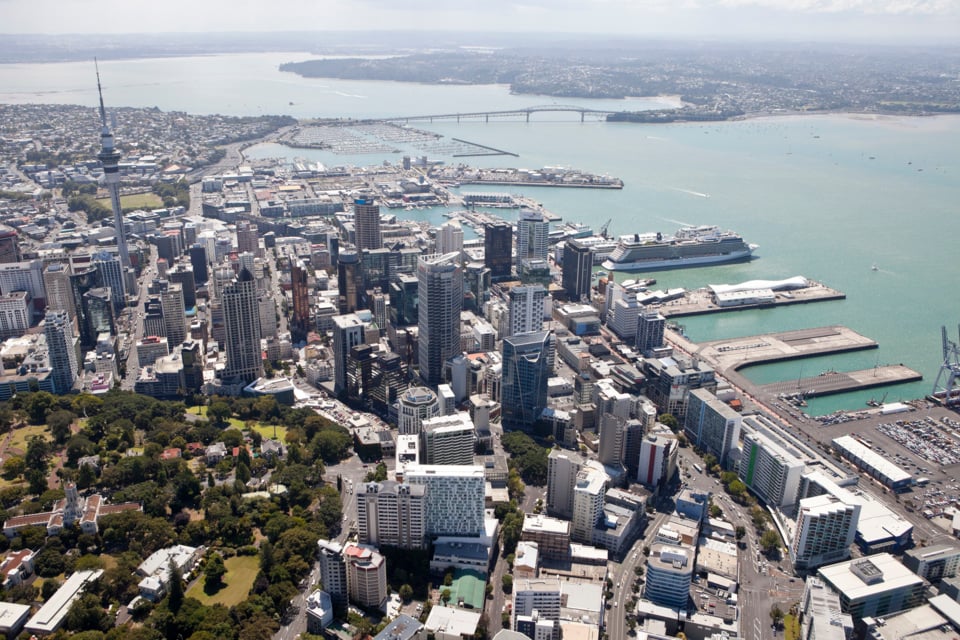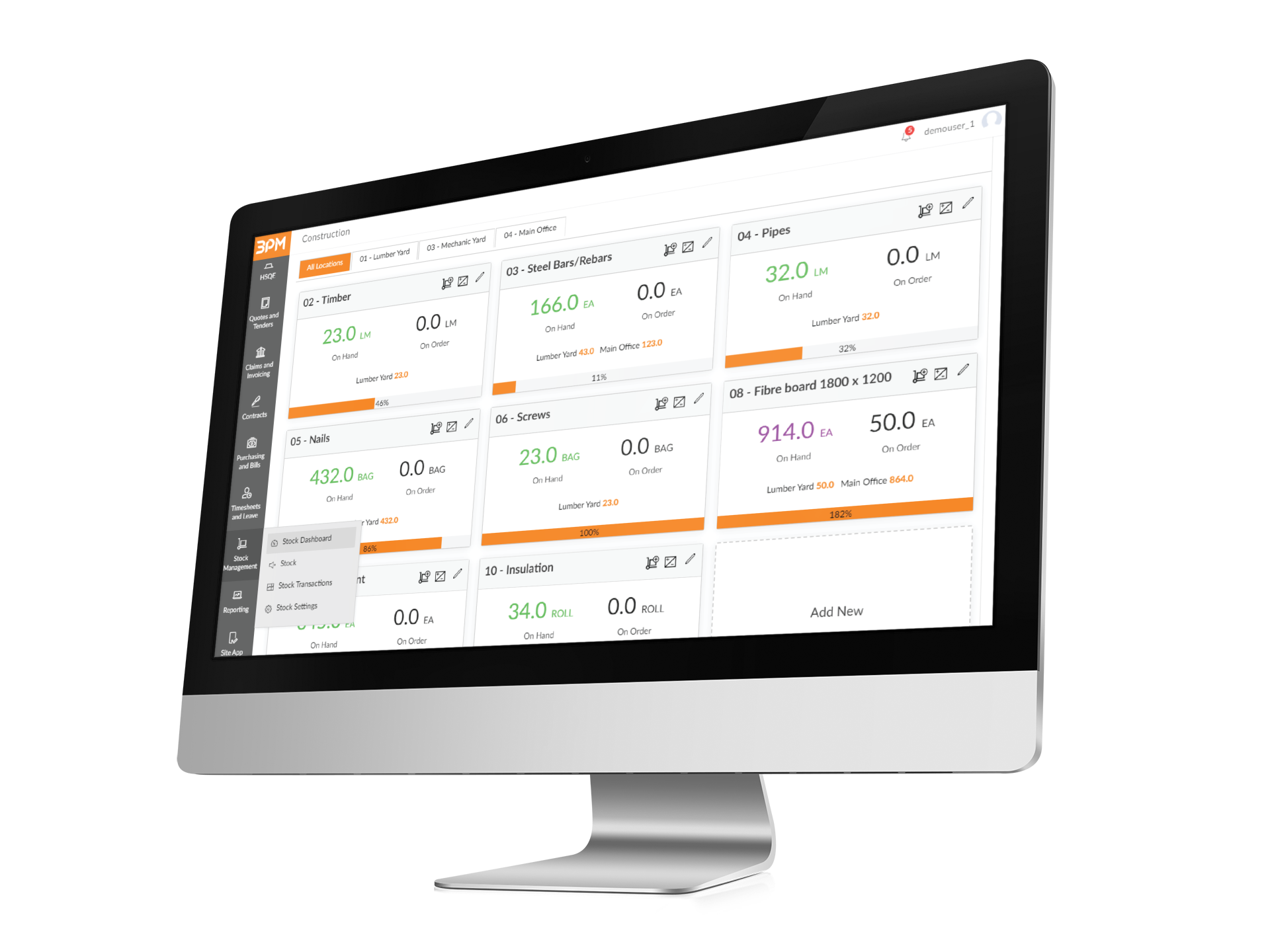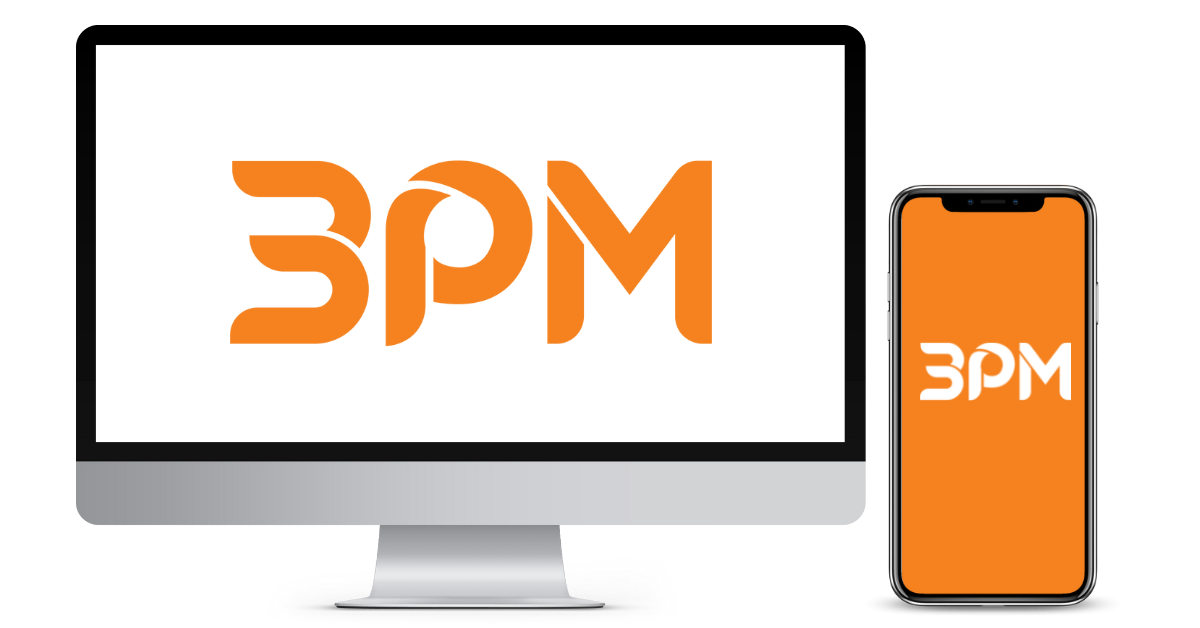Embracing Industry 4.0: Transforming Aotearoa’s Construction Sector
The Fourth Industrial Revolution, also known as Industry 4.0, is transforming sectors worldwide with a seismic shift towards digitisation,...
4 min read
 Andrew Radcliffe
:
Jul 4, 2023 9:38:28 AM
Andrew Radcliffe
:
Jul 4, 2023 9:38:28 AM

The Fourth Industrial Revolution, also known as Industry 4.0, is transforming sectors worldwide with a seismic shift towards digitisation, decentralisation and automation. Within the backdrop of this global revolution, Aotearoa, or New Zealand, is embarking on its own transformative journey, most notably in its construction sector. As the ripples of Industry 4.0 touch our shores, the impacts of this digital revolution promise to be far-reaching and transformative.
Reference: HERA - www.hera.org.nz
Dubbed Construction 4.0, this new approach is leading us to rethink our traditional methods, making way for a future where physical and digital worlds connect seamlessly. While it's not as clear-cut as defining what, say, a hammer or a crane does, it's the new kid on the block that everyone is talking about.
If we had to sum it up, Construction 4.0 revolves around a decentralised connection between the physical world of construction projects and their representation in the cyberspace. It aims to reduce human intervention, fostering a direct fusion between physical reality and digital equivalents. However, the concept extends beyond mere technological upgrades; it entails a broader, more encompassing approach to tackle the industry’s current challenges and future-proof it.
Industry 4.0, in many sectors, hinges on technologies that enable ubiquitous connectivity and decentralised real-time decision-making. But for Construction 4.0, the story is a little different. It doesn’t just bank on these technologies but casts a wider net. We’re talking about the Internet of Things, Digital Twin, additive manufacturing, cloud computing, Cyber-Physical Systems (CPS), and of course, BIM.
Together, these technological approaches promise to automate almost the entire project life cycle. For instance, in the design phase, BIM models, acting as digital twins, enable simulations of a building's physical product, its constructability, profitability options, and sustainability. Come the construction phase, these digital twins are further enhanced by technologies like drones, embedded robotics, and monitoring systems, making real-time updates a reality.
So, what does this all mean for Aotearoa? Well, simply put, it’s a new era where we can offer personalised, smart and connected building products. This digital transformation will go far beyond just tech upgrades; it's also about shaking up processes, integrating information, and enabling people and knowledge sharing.
With horizontal, vertical, and end-to-end integration on the cards, the way we handle the entire value chain in the construction industry is set to change. We're stepping into an era of decentralised decision-making, greater integration, customisation and advanced prefabrication. In this scenario, the manufacturer might even sit right at the beginning of the supply chain, providing answers to increasingly complex design demands. It's like opening the door for a more interconnected ecosystem, where humans, machines, and human-machine interactions create a synergistic environment.
Construction 4.0, at its core, is data-centric. This digital revolution is going to generate a staggering amount of data from diverse sources, including sensors, CPS systems and other platforms. We're not just dealing with an increased volume of data but an expansion in the variety and velocity of data.
Managing this data will be a challenge. We'll need platforms that can interpret, manage, and connect the data to existing business platforms. What we're envisioning here are not just big data platforms but matchmaking ones – platforms that connect the construction site with smart factories, enable smart design, and promote the usage of connected smart buildings, or even smart cities.
Construction 4.0 holds tremendous potential for Aotearoa's construction sector. It will require change, but it's also a unique opportunity to revolutionise the way we build and create a sustainable future. As we stand at the crossroads of this transformative shift, it's exciting to envision the possibilities and challenges that lie ahead.
Our spirit of innovation and our commitment to sustainability, coupled with Mātauranga Māori, the traditional knowledge of the Māori people, uniquely positions us to make the most of this change. We have a real opportunity to develop new ways of building that are not only more efficient and sustainable but also deeply connected to our unique cultural heritage.
In a nutshell, Construction 4.0 is an exciting prospect for Aotearoa, bringing with it the promise of a future where technology, people and nature blend seamlessly to create an enriched construction landscape. Let's embrace it, and together, we can redefine the construction industry in Aotearoa and potentially, the world.
In the era of Construction 4.0, our ability to offer personalised, smart, and connected building products is a game-changer. This digital transformation is more than just tech – it's about people, processes, information, and knowledge.
From horizontal integration (collaboration across the value chain) to vertical integration (networked manufacturing systems in smart factories), and end-to-end integration (digital connection across the value chain), the construction landscape is shifting. We're looking at decentralised decision-making, greater integration, and customised prefabrication and assembly solutions.
Here's the interesting bit. In this new era, the manufacturer could be right at the beginning of the supply chain, meeting increasingly complex design demands. This opens the door for multi-level interconnection between humans, machines, and even between humans and machines.
An essential part of this research is intertwining with Mātauranga Māori. Merging Construction 4.0 and Mātauranga Māori is a unique challenge that we in Aotearoa are set to tackle head-on. The goal is to weave the indigenous worldview into Construction 4.0 decision-making tools, crafting a distinctly Māori framework to meet the challenges this new construction era brings.
This isn't just about building bridges between our traditional knowledge and the latest technology, but also about keeping the essence of key Māori concepts like tūhonotanga (attachment, joining, link), ngākaupono (honesty, good faith), and ūkaipōtanga (roots, belonging). By embracing and integrating these principles, the research aims to reshape the concept of Construction 4.0 in Aotearoa.
The results of this fresh approach are going to be game-changing. The research will yield discoveries that are relevant not just here in New Zealand but also on the international stage, showcasing how indigenous knowledge can be stitched into a sector-wide transformation.
Reference: HERA - https://www.hera.org.nz/construction40-matauranga-maori/
In the world of Construction 4.0, data is king. It's not just about volume but variety and velocity. Sensors, CPS systems, and various platforms will generate loads of data, requiring us to interpret, manage, and connect them to existing business platforms.
We're talking about matchmaking platforms here, connecting the construction site with smart factories, smart design, and connected smart buildings (or even cities). Naturally, this comes with its own set of challenges, such as the development of global standards.
But if there's one thing we Kiwis are known for, it's our knack for innovation and problem-solving. By intertwining Construction 4.0 with Mātauranga Māori, Aotearoa is uniquely positioned to reshape the construction landscape, not just locally, but globally. So, bring on the future, we're ready for it!

The Fourth Industrial Revolution, also known as Industry 4.0, is transforming sectors worldwide with a seismic shift towards digitisation,...

The Construction Sector Accord in New Zealand stands as a testament to the dedication and commitment towards transforming the construction sector....

The construction industry is a complex, dynamic entity encompassing myriad stakeholders, processes, and activities. It has long wrestled with issues...